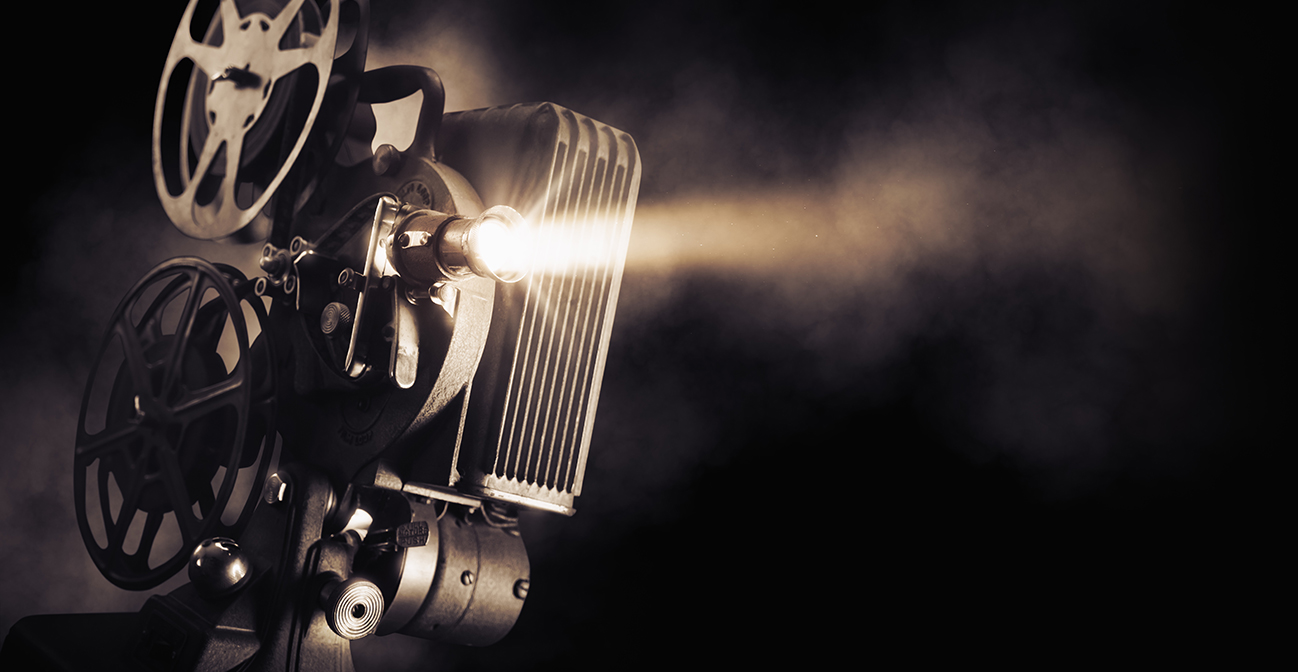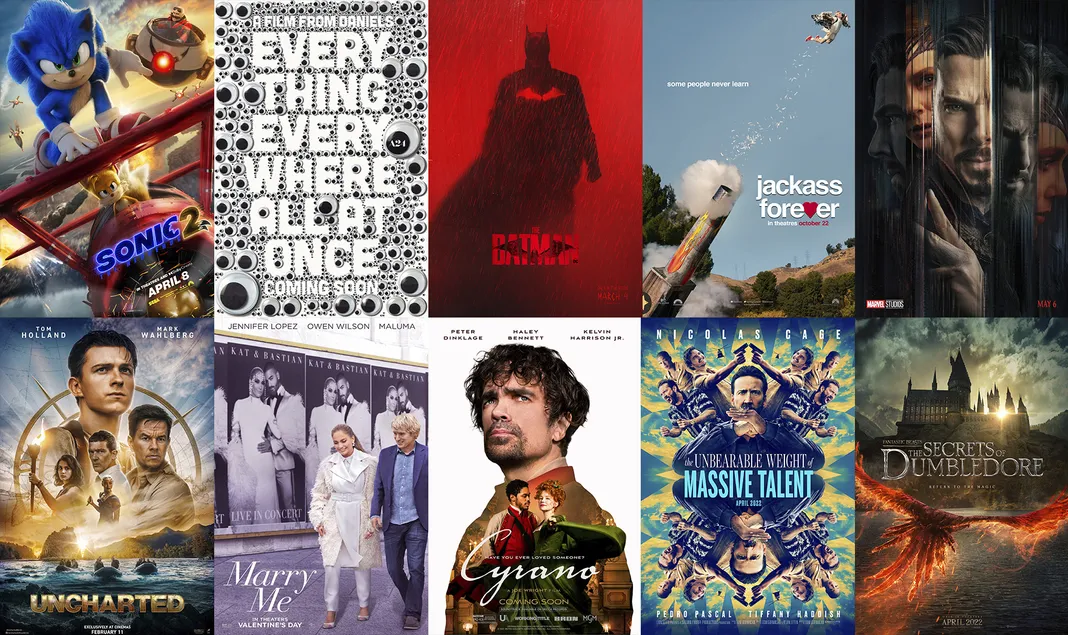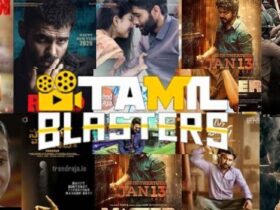Introduction to Movie Nation
Movies are more than mere sources of entertainment; they are powerful windows into the human experience. Emotions come alive, imagination knows no bounds, and journeys into the unexplored or the unthinkable are suddenly within our reach.
For Movie Nation, a term that encapsulates the collective consciousness of all those passionate about film, there is an endless expanse of celluloid stories waiting to be explored. This blog post is a celebration of the enchanting tapestry that movies have woven across the ages.
History of Cinema

Before the megaplex, before Technicolor and CGI, there was black and white silence. This was the golden era of silent films, where the art of storytelling was strictly visual, and expressions were exaggerated to speak volumes without the need for sound.
As the decade’s raucous soundtrack built up, cinema evolved. This progression is a testament to human ingenuity and our endless quest for richer narrative experiences. Let’s travel through time and explore the milestones that have shaped the cinematic experience.
Silent Beginnings
D.W. Griffith’s masterpieces ‘Birth of a Nation’ and ‘Intolerance’ introduced large narrative works to the medium in the early 20th century. The critical response to ‘Birth of a Nation’ launched the art of film and with it the boundaries of racial, social, and political discourse in pop culture.
The Golden Age of Hollywood
The 1930s and 1940s brought with them a melting pot of creativity that was the Golden Age of Hollywood. Epics like ‘Gone with the Wind’ and ‘The Wizard of Oz’ became synonymous with grand storytelling spectacles that elevated escapism into an art form.
The Rise of Independent Cinema
The end of the studio system birthed a new kind of filmmaker – the independent auteur. Directors like John Cassavetes and Melvin Van Peebles created a new film language, one steeped in raw emotion and gritty realism that captivated and challenged audiences of the 1960s and 1970s.
Genres and Themes

Movies come in all sorts of flavours, each catering to a unique palate. Genres are the guiding stars, leading us to the kinds of stories that resonate with our personal interests.
Themes, on the other hand, are the underlying messages that can turn a simple rom-com into a profound exploration of the human condition. Let’s delve into the diverse genres and significant themes that have made their mark on movie nation.
The Thrill of the Unknown: Science Fiction and Fantasy
From George Méliès’ fantastical ‘A Trip to the Moon’ to the recent resurgence of the ‘Star Wars’ saga, Sci-Fi and Fantasy movies have always been about taking the audience on a journey far beyond the familiar.
In these worlds, creators can reflect on our societal fears and aspirations while pushing the boundaries of what’s imaginable.
Inside the Human Psyche: Psychological and Mystery Films
Alfred Hitchcock’s ‘Psycho’ and David Fincher’s ‘Se7en’ share a genre that is ceaselessly intriguing. These are movies that delve deep into the human mind, often with a mysterious, gripping narrative that keeps us on the edge of our seats.
The Heart of a Nation: Historical and War Films
Movies like ‘Schindler’s List’ and ‘Saving Private Ryan’ are not just stories of times past—they serve as reminders of collective memory, and often, warnings about our future. They deal with monumental moments in our history, re-telling them in ways that make the past viscerally present.
Iconic Directors and Filmmakers
A film, more often than not, is the personal vision of a director who acts as the storyteller and maestro of the moving picture. There are those rare few who have made such an indelible mark on cinema that their names are synonymous with their unique styles and thematic obsessions.
The Auteur Theory
The Auteur Theory, championed by French film critics of the 1950s, holds that the director is the main ‘author’ of a film, with a singular vision that can be tracked across their entire body of work. This theory elevated directors to the level of artists, and it’s not hard to see why.
Visionaries of the Big Screen
Stanley Kubrick, with his meticulous horror and existential terror, like in ‘The Shining’, or political commentary and satirical wit in ‘Dr. Strangelove’, proved movies could be grand artistic statements.
The New Hollywood Wave
The 1970s in America saw a wave of young, rebellious directors challenging the status quo. Martin Scorsese and Francis Ford Coppola redefined the gangster genre in ‘Mean Streets’ and ‘The Godfather’, respectively, capturing the hearts and minds of a new generation of filmmakers and audiences.
Memorable Movie Moments
In the annals of cinematic history, there are moments that transcend the film they are part of, becoming etched in cultural memory. These moments are the ones where sound, vision, and artistry collide in perfect harmony to create emotional echoes that reverberate through time.
“Here’s looking at you, Kid.”
Casablanca’s closing line between the star-crossed Rick Blaine and Ilsa Lund has become one of the most famous romantic declarations in the history of cinema, encapsulating the longing and regret that underpins the entire film.
“I’m going to make him an offer he can’t refuse.”
In ‘The Godfather’, this line from Marlon Brando’s Don Vito Corleone is a rare mix of intimidation and care, a sentiment that carries the weight of the film’s entire mafia legacy.
The Shower Scene in ‘Psycho’
Alfred Hitchcock’s notorious shower scene manages to evoke terror through the viewer’s imagination — a technical and artistic marvel that has been studied and emulated for decades.
Cinematic Techniques
Movies are a marvel of various arts and sciences coming together to create a visual and auditory masterpiece. Directors have a plethora of techniques at their disposal, each with the power to change how we perceive a story.
The Power of the Close-Up
The close-up is an intimate window into a character’s soul. By filling the screen with expression, we are drawn into a direct dialogue with the character. This technique, when used skillfully, can define a film.
The Beauty of Lighting
Lighting sets the mood. From the harsh, deep shadows of Film Noir, to the bright, saturated lights of Technicolor musicals, the way a movie is lit can alter the viewer’s emotions and understanding of the story being told.
The Language of Editing
Editing is often called the ‘invisible art’ of film – its job is to immerse, connect, and communicate the narrative in a seamless and orchestrated manner. A single cut can change the entire perspective of a scene.
Critics and Reviews
Critics are the gatekeepers to a world of movies. Their reviews can launch careers, tank blockbusters, and form the backbone of public opinion around a film.
The Golden Pens of Criticism
From Pauline Kael’s provocative prose to Roger Ebert’s accessible and compassionate reviews, the film world is indebted to the critics who didn’t just watch movies, but who thought deeply about them and shared those thoughts with audiences.
A Balancing Act
Film criticism is a delicate balance. While it is important to provide an honest evaluation of a film based on its objective merits, it is equally crucial to recognize the subjective experience of each viewer. After all, art is in the eye of the beholder. So, while critics may analyse and dissect a film, ultimately it is up to the audience to decide whether they like it or not. Reviews should serve as a guide but never dictate the enjoyment of a movie. As the saying goes, “one person’s trash is another person’s treasure.”
Film Festivals and Awards
Film festivals are the beating heart of the global movie nation. They celebrate the diversity of the medium and serve as both a launching pad for new talent and a battleground for the industry’s best.
Cannes Film Festival
Founded in 1946, the Cannes Film Festival is arguably the most prestigious film festival in the world. It’s a celebration of all things cinema and is a platform for directors to showcase their latest works.
Academy Awards (The Oscars)
The Academy Awards are perhaps the most well-known and highly coveted awards in the film industry. Awarded annually by the Academy of Motion Picture Arts and Sciences, they honor the best films and performances of the year. Winning an Oscar is often seen as a crowning achievement for filmmakers and actors alike.
The Future of Film
As technology continues to advance, so do the possibilities for storytelling on screen. Virtual reality, motion capture, and computer-generated effects have opened up new frontiers for directors and their visions.
The Rise of Streaming Services
With the advent of streaming services such as Netflix, Amazon Prime, and Hulu, more and more films are being produced specifically for these platforms. This has challenged traditional distribution methods, giving smaller independent filmmakers a chance to showcase their work to a wider audience.
Virtual Reality Revolution
Virtual reality technology is quickly becoming more accessible sport and is being utilized by filmmakers to immerse viewers in completely new ways. With the ability to create entire virtual worlds, the possibilities for storytelling are endless.
Diversity and Inclusion
The film industry has often been criticized for its lack of diversity and representation. However, recent years have seen a push towards more inclusive storytelling, with diverse voices finally being given a platform.
The Prestigious Palme d’Or
Cannes Film Festival’s top prize symbolizes a film’s artistic integrity and innovation. Winning it launches careers and secures a place in cinematic history for the victor.
The Glitz and Glamour of the Oscars
The Academy Awards—the Oscars—are simultaneously a cultural touchstone and a commercial juggernaut. They are cinematic’s Super Bowl, where the industry’s best gather each year to celebrate the year in film.
The Future of Movies
As technology marches ever forward, the face of movies is bound to change. Virtual reality, AI, and streaming services are all poised to alter how we consume and create cinematic experiences. But what remains constant is the power of story, the allure of characters, and the magic that is movie nation.
The Streaming Revolution
The advent of platforms like Netflix, Amazon Prime, and Disney+ has made movies more accessible than ever before. The traditional filmgoing experience may be changing, but the love for the medium is unwavering. Streaming services have also opened the doors for diverse content that might not have seen the light of day in multiplexes, allowing for a more democratized movie nation.
The Impact of Technology on Storytelling
As visual effects become more sophisticated, the line between reality and fantasy blurs. Filmmakers like Alfonso Cuarón, who used groundbreaking technology to create the single-shot illusion in ‘Gravity’, and Sam Mendes, who applied similar techniques in ‘1917’, are pushing the boundaries of what’s possible.
Conclusion on Movie Nation

The world of movies is a vast universe waiting to be explored. From the silent films of yore to the blockbusters of today, each cinematic journey presents an opportunity to learn, to escape, and to feel. Movie Nation is not just a place—it’s a state of mind, a shared experience that unites us all. So grab some popcorn, sit back and enjoy the show.
The possibilities are endless. So, let’s keep watching and discovering new stories that will continue to shape our understanding of ourselves and the world around us. Because in movie nation, there is always something for everyone, and the magic of cinema will never cease to amaze us.
Keep exploring, keep dreaming, and keep experiencing the power of film. The journey is never over in movie nation. So here’s to many more years of cinematic tales that remind us of our humanity, inspire us, and transport us to new worlds.
Cheers to the endless possibilities and emotional echoes that will continue to reverberate through time. “That’s all, folks!” (Looney Tunes, 1930). But we all know that it’s never truly the end. It’s just the beginning of a new adventure in movie nation. So, let’s keep watching and celebrating the magic of movies! The show must go on. See you at the cinema!
Enjoying Movie Nation
Movie Nation is a world of endless possibilities and endless stories. Whether you are a casual viewer, a passionate cinephile, or a student of the medium, there is always something to discover and enjoy in this magical realm.
So go ahead, dive into your favorite genres, explore new ones, revisit old classics, and experience the beauty of cinema in all its forms. And remember, the more we watch and appreciate, the more we contribute to the legacy of movie nation. So let’s keep watching and enjoying the ride together! Lights, Camera, Action! The show begins now. Enjoy Movie Nation!
“Thank you for joining us on this journey through Movie Nation. We hope that this exploration of the art, language and impact of film has sparked your curiosity and passion for movies even more. Now it’s time for you to take your own cinematic adventure, discover new stories, engage in discussions with fellow movie-lovers and continue to expand your love for this powerful medium. Remember, the magic of movies never ends in Movie Nation!”.
The Movie Nation Team So what are you waiting for? The credits may have rolled on this document, but the story of movie nation is far from over. Let’s continue to immerse ourselves in its wonders and celebrate the power of film! See you at the movies!
FAQ’s on Movie Nation
Q: What makes a movie become a cultural touchstone?
A: Movies become cultural touchstones when they manage to articulate the zeitgeist, embody a social movement, or tap into a universally felt emotion in such a way that their reach extends far beyond the time and place they were made.
Q: How do festivals contribute to the art of film?
A: Festivals serve as a platform for discovery, representing the diverse, global, and often independent facets of moviemaking. They contribute by showcasing new, perhaps unconventional, films and, by awarding excellence, setting benchmarks for the industry.
Q: Are sequels and reboots diluting the power of original cinematic stories?
A: While it’s true that the current marketplace is saturated with sequels, reboots, and franchise films, it’s important to remember that even these can contribute to enriching a cinematic universe, especially if they are handled with the same dedication to storytelling that the originals were. Moreover, there is always room for new, original stories that can capture the imagination of movie-goers.














Leave a Reply